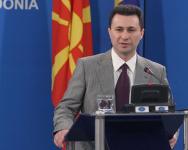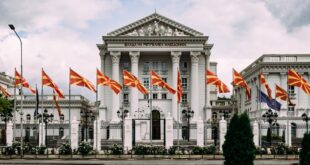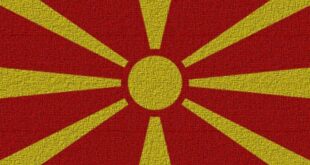 Greek hints that it approves of the UN’s latest proposal “Republic of Northern Macedonia” as a compromise name for Macedonia has been met with a cold reception by the leadership in Skopje.
Greek hints that it approves of the UN’s latest proposal “Republic of Northern Macedonia” as a compromise name for Macedonia has been met with a cold reception by the leadership in Skopje.
Speaking at a Washington-held conference dedicated to United States policy towards the Balkans, the Greek Ambassador to the US, Alexandros Mallias regarded this name as “finally a good proposal” which has been put on the table.
“I am not surprised from this statement because Greece has preferred that designation since the 1990s. There are other things that need to be worked on, like the constitution, the passports and the identity. The talks are a lot more complex than the statement that has been given,” Macedonia’s Prime Minister Nikola Gruevski on Wednesday told media.
Georgi Ivanov, the recently elected head of state who was endorsed by Gruevski’s ruling VMRO DPMNE party made a similar statement and replied the party’s long-standing stance that any possible solution agreed between the two countries must go to a referendum in Macedonia.
“This proposal [Northern Republic of Macedonia] has been present for fifteen years and it represents a geographical designation [for Macedonia] that Greece wants,” Ivanov stated.
The UN envoy mediating the Athens-Skopje talks, Matthew Nimetz proposed some variations of this name at the end of last year after which the talks came to a practical halt due to upcoming elections in both countries.
Greece has objected to Macedonia’s formal name since the country became independent from the former Yugoslavia at the beginning of the 1990s.
Last April Athens blocked Skopje’s entry into NATO arguing that this name implies Skopje’s territorial claims on the Greek region of Macedonia.
Since then, relations between the two countries have deteriorated leaving Macedonia outside both NATO and the EU as Greece threatens to block any progress towards membership.
But Skopje fears that by loosing its name, the Macedonian majority living in the country might lose its identity. Athens on the other hand insists that the only real Macedonians are the ones living in Northern Greece.
Media mentioned that the last Nimetz package also included suggestions for changing Macedonian passports and constitution where references to the terms Macedonian language or people would be removed.
Observers expect new more substantial moves in the UN talks after Greece elects its EU lawmakers in June.
 Eurasia Press & News
Eurasia Press & News



